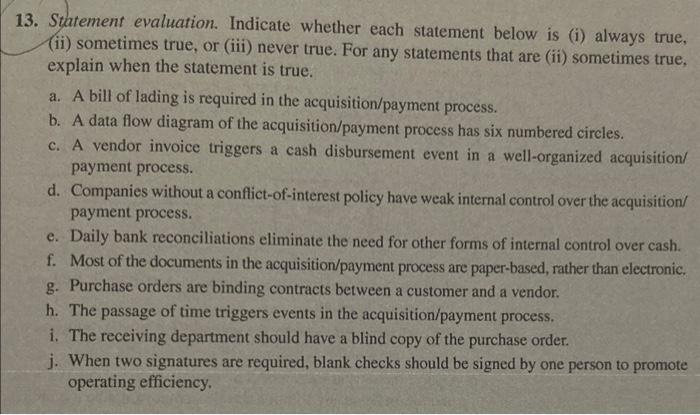Answered step by step
Verified Expert Solution
Question
1 Approved Answer
13. Statement evaluation. Indicate whether each statement below is (i) always true, (ii) sometimes true, or (iii) never true. For any statements that are

13. Statement evaluation. Indicate whether each statement below is (i) always true, (ii) sometimes true, or (iii) never true. For any statements that are (ii) sometimes true, explain when the statement is true. a. A bill of lading is required in the acquisition/payment process. b. A data flow diagram of the acquisition/payment process has six numbered circles. c. A vendor invoice triggers a cash disbursement event in a well-organized acquisition/ payment process. d. Companies without a conflict-of-interest policy have weak internal control over the acquisition/ payment process. e. Daily bank reconciliations eliminate the need for other forms of internal control over cash. f. Most of the documents in the acquisition/payment process are paper-based, rather than electronic. g. Purchase orders are binding contracts between a customer and a vendor. h. The passage of time triggers events in the acquisition/payment process. i. The receiving department should have a blind copy of the purchase order. j. When two signatures are required, blank checks should be signed by one person to promote operating efficiency.
Step by Step Solution
There are 3 Steps involved in it
Step: 1

Get Instant Access to Expert-Tailored Solutions
See step-by-step solutions with expert insights and AI powered tools for academic success
Step: 2

Step: 3

Ace Your Homework with AI
Get the answers you need in no time with our AI-driven, step-by-step assistance
Get Started


